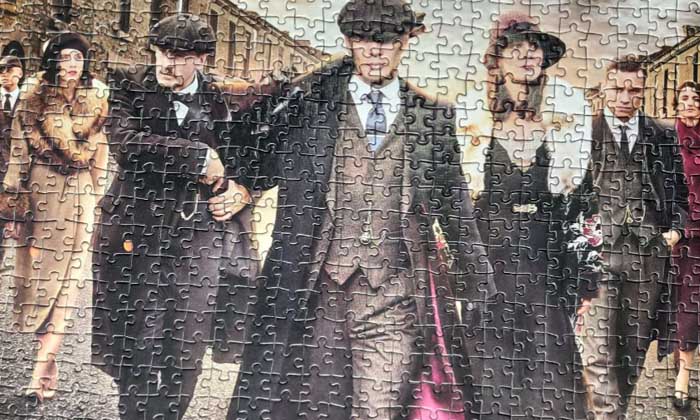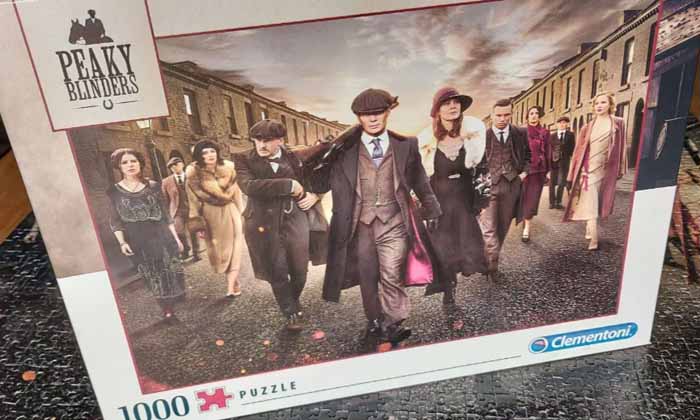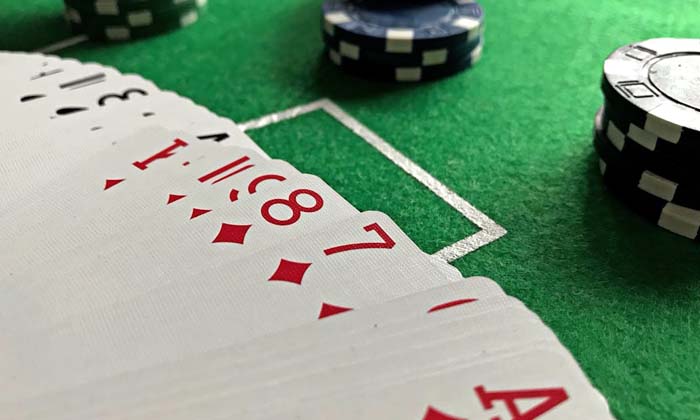The recent worldwide lockdowns have afforded people more time to indulge in home friendly hobbies with Jigsaw puzzles coming out as a clear winner. Personally, I have always loved jigsaw puzzles but usually only got the chance to do them during the Christmas week. Since April 2020 I am proud to be able to boast on having completed ten 1000-piece puzzles and I have just started number eleven.
Jigsaw Puzzles are more than just fun and games


A Brief History
The earliest jigsaw dates back to 1760 and was developed by John Spilsbury, a London based cartographer and engraver. Spilsbury would mount maps onto wood and cut them according to land boundaries and they were used as a geography teaching tool.
If you would like to purchase the Peaky Blinders 1000 pieces Jigsaw Puzzle from Clementoni pictured on this post, just tap the button below.
They were originally called dissections and made from wood. The name Jigsaw, as it would suggest, derives from the tool used to cut the pieces. However, it is a bit of a misnomer as the actual saw used was a Fretsaw.
Sales of jigsaws for fun really took off in the Great Depression as they provided cheap, long lasting entertainment that helped take people's mind off the hard times. This has again been repeated in recent times with the stay at home orders we are all adhering to.
Health Benefits
There are many great benefits to be gained from being a dissectologist, someone that does Jigsaws, they are good for your brain and mental health. They provide a meditative quality to your spare time as you are clearing your mind and focussing on one picture, much like when meditating. It encourages you to block out stressful thoughts and frees your mind from anxiety for a short period of time giving you the ability to relax.
They are also very good for boosting your short-term memory, studies have shown that they can be of benefit to elongate your life span and make you less likely to develop cognitive impairments in later life.
They also employ left and right brain hemispheres simultaneously which is something that does not occur in many activities. So are a great tool for creative and practical brain activity occurring in unison.
This can aid in driving, organisational skills, using maps, and coordination, this is why they are used as an essential developmental toy for children. They provide fun but are also great for the development of a child's spatial awareness and fine motor skills. They have also been proven to build IQ and it is reported that Bill Gates is an avid puzzler. Even on the CBBC website, they have a dedicated section especially for puzzles to help children's development.
Jigsaws help with big-picture thinking. You are looking at a small tiny piece and finding where it fits into the large image, this is great for organisational skills in the workplace and life management. They also provide a massive mood boost when you find a piece or complete a difficult section your brain releases serotonin that makes you feel euphoric and able to face your daily challenges with confidence and determination.
Improve short-term memory
Taking on a puzzle challenge is a great way to improve short-term memory because it reinforces connections between brain cells and improves mental speed.
Enhances your mood
Successfully fitting pieces or completing a puzzle increases the production of dopamine, also known as the 'feel-good' or 'Happy hormone'. Dopamine regulates mood, memory, and concentration.
Helps you get better sleep
Most people unwind by watching the television. There is nothing wrong with catching up on your favourite shows in the evening but if you want the best possible sleep you should avoid screen time before bed. Puzzles are a great way to relax and wind down before bed.
Improve visual and spatial reasoning
Looking for different pieces to fit together is no easy task but the more you do the better you become at it while also improving your overall visual and spatial reasoning skills.
Huge stress relief benefits
Engaging in puzzles is akin to meditating, which is proven to lower your blood pressure and heart rate.
Sharpens your logic and reasoning
Think of puzzles as an exercise for your brain. Jigsaw puzzles, crosswords, riddles, sudoku, tactical board games, word searches and logic problems activate different parts of your brain, which in turn will hone your critical and analytical thinking skills.
See also: How to Complete Peg Solitaire
Typically a 1000-piece puzzle will take around 5-10 hours to complete, obviously, it will be spread over a few days or weeks even, but the bonus here is that it motivates you to keep going and gives you a clear message that 'Rome wasn't built in a day'. In order to reach goals and achievements, it takes time, commitment and dedication all essential elements to keep in mind when faced with challenges in your daily life.
For me personally, I get a feeling at the beginning of a puzzle when I open the box and look at all the tiny pieces, I feel daunted and think I can never sort out that mess, then I start dividing up the pieces and begin. It gives me the confidence that whatever challenge comes my way, if I break it down into manageable pieces, I can sort things out successfully.
Tips and Techniques
If you are new to Jigsaws or find that you begin them and lose the drive to fully complete the puzzle there are simple steps you can follow that will help you speed through the most challenging images or piece count. Setting up your work area is very important as you need a fair bit of space with good lighting. I use the end of my dinner table that is faced with the garden door but in the winter months I need to top up the light with a small table top light. Having adequate light makes such a big difference as you need to see small definitions and colour on each piece to help you place them correctly.
The first step is to sort through the pieces and pull out all the flat edges and find the four corners. Once that is done you start fitting together all the sides, so you have the puzzle perimeter completed. Then if you can lay out all the remaining pieces picture side up, this can be tricky if you have limited space, if not put some on the table and some inside the box.
Next, I group the pieces into colour blocks, start with the three or four dominant colours and then begin to fit them together, as things take shape you will be able to see where they fit within the puzzle and can build from there.
Look for distinctive details such as writing or faces, these will provide a good starting point as they don't get easily mixed up and will be quicker to piece together over larger areas such as sky, etc.
Another good tip when you are faced with large areas of sky or sea or one main colour that has very little detail is to be guided by the shape of the pieces. A good quality puzzle should have several different shaped pieces with varying spikes, some have just one whilst others have three or four. By looking at the surrounding pieces you can see if the piece required has two spikes on a right angle or two cutaways and eliminate mismatched shapes from your search.
If you are not sure if you have a correct match then take the two pieces and turn them over to inspect the back, they should be a snug fit with no gaps. If you can see spaces or are forcing the pieces, then chances are they are not correct.
Selection and Accessories
There are so many jigsaw puzzles on the market now, to suit all levels and interests. You can even buy ones that have differing levels within the same puzzle so that the whole family can participate together which is a great bonding and teamwork activity. There are 3-D puzzles, animal shapes, spherical and loads more. You can buy mounts, puzzle glue if you want to keep the completed puzzle to display. There are roll-up mats, if you have limited space these will help.
One of the most respected jigsaw brands is Ravensurger which have a huge catalogue of jigsaw puzzles for adults and children alike.
7 of the best Ravensburger Puzzles
- Ravensburger Christmas House 1000 Piece Jigsaw Puzzle
- Ravensburger My Haven No.7 The Beach Hut 1000 Piece Jigsaw
- Ravensburger Our Feathered Friends 1000 Piece Jigsaw Puzzle
- Ravensburger My Haven No.6 The Cosy Shed 1000 Piece Jigsaw Puzzle
- Ravensburger The Gruffalo 4 in Box Jigsaw Puzzle
- Ravensburger Animals of the World 60 piece Jigsaw Puzzle for Kids
- Ravensburger Let's Visit Santa 1000pc Jigsaw Puzzle
Overall puzzles have come a long way from Spilsbury's dissected wooden maps, but the fun and benefits remain unchanged. They are a great activity to enjoy as a family or to take some quiet time alone. They help boost your mood and give you a great feeling of accomplishment when you conquer and tricky area or finish completely. I would whole-heartedly recommend them to anyone as a fun hobby for all ages and abilities, there is literally a puzzle out there for everyone.



